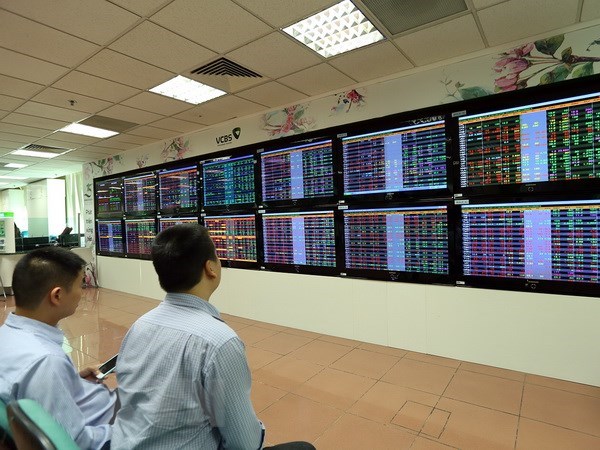
Illustrative image (Source: VNA)
According to the State Securities Commission of Vietnam (SSC), the country’s stock market has been fluctuating due to global and Asian stock markets.
However, foreign investors still bought more than 40.53 trillion VND (over 1.74 billion USD) worth of shares from the country’s stock market.
Although the market faces many difficulties, analysts said the Vietnamese economy is strong enough to help the market stand steady amid the impact of the external environment, and will recover in the second half of 2018.
The stock market is in a big adjustment phase, but risks are low with the value of cumulative stocks in the market still good, said Le Duc Khanh, chief economist and Strategic Director of PetroVietnam Securities Incorporated.
Market capitalisation is still high, and the VN-Index may only fall to 800-850 points and should return to the upward trend, he added.
“I am still optimistic about the economic prospects of Vietnam”, Khanh stressed.
Sharing Khanh’s view, Le Ngoc Nam from Tan Viet Securities Joint Stock Company predicted that the stock market is likely to be more stable in the second half.
He, however, noted it would be difficult for the VN-Index to return to the level of 1,200 points this year.
According to SSC Chairman Tran Van Dung, Vietnam still has much potential to attract foreign investment.
He cited Vietnam’s advantages, including a predicted GDP growth rate of at least 6.5 percent in 2018-2020, the Government’s commitment to remove investment barriers, support private sector and accelerate the state capital divestment, initial public offerings of State-owned enterprises and listing of large businesses.
These factors will help the country’s stock market attract more capital, especially foreign investment, he noted.
Objectively, Vietnam has a comparative advantage over many countries in the region and the world's stock markets, Dung said.
Vietnam has witnessed increasing investment from Japan, the Republic of Korea and other countries in the field, and investment from Thailand and Malaysia has been also poured into Vietnam recently, he added.
Concluding the July 11 session, the VN-Index fell more than 25.83 percent to close at 983.16 points, down 221.17 points compared to the highest level of 1,204.33 points in the first quarter./.
VNA
 Central bank mulls raising gold position limit for lenders
Central bank mulls raising gold position limit for lenders



